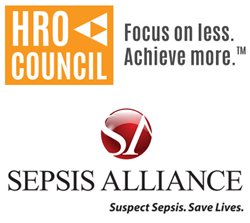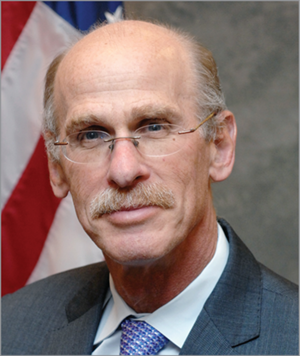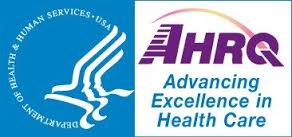 Matching patients to their medical records from multiple health care providers is critical to medical care, but can be challenging to accomplish because their records can be incomplete or inaccurate, and patients often share similar names. How, for example, to match medical records to the correct “John Jones” or “Maria Garcia” from their primary care doctor's office, the lab which processed tests the doctor ordered, the imaging center where they had a cancer screening, the out of town hospital where they were treated while on vacation? What if a name is recorded as James at one site and as Jim at another? And what if a common or uncommon name is mistyped at one or more places?...
Matching patients to their medical records from multiple health care providers is critical to medical care, but can be challenging to accomplish because their records can be incomplete or inaccurate, and patients often share similar names. How, for example, to match medical records to the correct “John Jones” or “Maria Garcia” from their primary care doctor's office, the lab which processed tests the doctor ordered, the imaging center where they had a cancer screening, the out of town hospital where they were treated while on vacation? What if a name is recorded as James at one site and as Jim at another? And what if a common or uncommon name is mistyped at one or more places?...
Agency for Healthcare Research and Quality (AHRQ)
See the following -
On Spooks And Healthcare: Should We Be Nervous?
An anonymous group of scientists is advising government agencies on futuristic national policies. Sounds like the stuff of a blockbuster action film or, better yet, timeless political satire...
- Login to post comments
ONC Issues New Guidance For More Reliable EHRs
The Office of the National Coordinator for Health IT hopes to make electronic health records safer through a new suite of checklists and recommended practices designed to help care providers and affiliated organizations optimize EHR safety. Read More »
- Login to post comments
Open Health Round-Up For 2014: Notable Articles, Reports, And Events
Even the hidebound field of health care can undergo a lot of change over the course of one year. Key health IT trends that I saw throughout 2014 are summarized in another article. Here I'll list some of the most notable articles and reports related to open source, standards, and transparency in health. Read More »
Problems with Health Information Exchange Resist Cures (Part 1)
 Given that Office of the National Coordinator for Health Information Technology (ONC) received 564 million dollars in the 2009 HITECH act to promote health information exchange, one has to give them credit for carrying out a thorough evaluation of progress in that area. The results? You don’t want to know. There are certainly glass-full as well as glass-empty indications in the 98-page report that the ONC just released. But I feel that failure dominated. Basically, there has been a lot of relative growth in the use of HIE, but the starting point was so low that huge swaths of the industry remain untouched by HIE...
Given that Office of the National Coordinator for Health Information Technology (ONC) received 564 million dollars in the 2009 HITECH act to promote health information exchange, one has to give them credit for carrying out a thorough evaluation of progress in that area. The results? You don’t want to know. There are certainly glass-full as well as glass-empty indications in the 98-page report that the ONC just released. But I feel that failure dominated. Basically, there has been a lot of relative growth in the use of HIE, but the starting point was so low that huge swaths of the industry remain untouched by HIE...
- Login to post comments
Providers Reluctant To Address EHR, Health IT Patient Safety
Healthcare providers struggle to address patient safety issues created by their EHRs and other health IT infrastructure, says a new report by the RAND Corporation and funded by the ONC...
- Login to post comments
Public Access To Scientific Research Advances
Progress toward making taxpayer-funded scientific research freely accessible in a digital environment was reached today with Congressional passage of the FY 2014 Omnibus Appropriations Bill. Read More »
- Login to post comments
Regenstrief Developing and Testing Novel, Real-World Automated Patient Identification
- Login to post comments
Significant Threats to Patient Safety from Healthcare Provider Overload and Burnout Must be Addressed
 Sepsis Alliance and the High Reliability Organization Council (HROC), two leading national advocates for patient safety, are raising the alarm on shortages in healthcare personnel, and the increase in data overload and medical provider burnout that is putting more and more patients at risk. Examples include long wait times to get appointments (which affects access to care), misdiagnoses that delay care, wrong-site surgeries, and other safety failures...
Sepsis Alliance and the High Reliability Organization Council (HROC), two leading national advocates for patient safety, are raising the alarm on shortages in healthcare personnel, and the increase in data overload and medical provider burnout that is putting more and more patients at risk. Examples include long wait times to get appointments (which affects access to care), misdiagnoses that delay care, wrong-site surgeries, and other safety failures...
- Login to post comments
Study Suggests Medical Errors Now Third Leading Cause of Death in the U.S.
 Analyzing medical death rate data over an eight-year period, Johns Hopkins patient safety experts have calculated that more than 250,000 deaths per year are due to medical error in the U.S. Their figure, published May 3 in The BMJ, surpasses the U.S. Centers for Disease Control and Prevention’s (CDC’s) third leading cause of death — respiratory disease, which kills close to 150,000 people per year. The Johns Hopkins team says the CDC’s way of collecting national health statistics fails to classify medical errors separately on the death certificate. The researchers are advocating for updated criteria for classifying deaths on death certificates.
Analyzing medical death rate data over an eight-year period, Johns Hopkins patient safety experts have calculated that more than 250,000 deaths per year are due to medical error in the U.S. Their figure, published May 3 in The BMJ, surpasses the U.S. Centers for Disease Control and Prevention’s (CDC’s) third leading cause of death — respiratory disease, which kills close to 150,000 people per year. The Johns Hopkins team says the CDC’s way of collecting national health statistics fails to classify medical errors separately on the death certificate. The researchers are advocating for updated criteria for classifying deaths on death certificates.
- Login to post comments
The Future of AHRQ’s Health Services Research
 Both houses of Congress will have to resolve their differences to pass a 2016 federal budget bill, which then goes to President Obama for his signature or veto. In the meantime, AHRQ Director Richard Kronick, PhD, sat down with JAMA to talk about the agency’s work and its relationship with other federal health research entities. The following is an edited transcript of that conversation...
Both houses of Congress will have to resolve their differences to pass a 2016 federal budget bill, which then goes to President Obama for his signature or veto. In the meantime, AHRQ Director Richard Kronick, PhD, sat down with JAMA to talk about the agency’s work and its relationship with other federal health research entities. The following is an edited transcript of that conversation...
- Login to post comments
Three Words That Health Care Should Stop Using: Insurance, Market, and Quality (Part 2 of 2)
 Andy Oram
Andy Oram
Endless organizations such as the National Association for Healthcare Quality (NAHQ) and the Agency for Healthcare Research and Quality (AHRQ) collect quality measures, and CMS has tried strenuously to include quality measures in Meaningful Use and the new MACRA program. We actually have not a dearth of quality measures, but a surfeit. Doctors feel overwhelmed with these measures. They are difficult to collect, and we don’t know how to combine them to create easy reports that patients can act on. There is a difference between completing a successful surgery, caring for things such as pain and infection prevention after surgery, and creating a follow-up plan that minimizes the chance of readmission. All those things (and many more) are elements of quality.
- Login to post comments
Wall Street Journal: "ObamaCare’s Electronic-Records Debacle"
 This Wall Street Journal (WSJ) Op-Ed could have been entitled "President Sucker: Led Down the Garden Path by The Healthcare IT Industry." It is entitled "ObamaCare’s Electronic-Records Debacle", as below. First, though: On Feb. 18, 2009 the WSJ published the following Letter to the Editor authored by me...I have a different view on who is deceiving whom. In fact, it is the government that has been deceived by the HIT industry and its pundits. Stated directly, the administration is deluded about the true difficulty of making large-scale health IT work. The beneficiaries will largely be the IT industry and IT management consultants.
This Wall Street Journal (WSJ) Op-Ed could have been entitled "President Sucker: Led Down the Garden Path by The Healthcare IT Industry." It is entitled "ObamaCare’s Electronic-Records Debacle", as below. First, though: On Feb. 18, 2009 the WSJ published the following Letter to the Editor authored by me...I have a different view on who is deceiving whom. In fact, it is the government that has been deceived by the HIT industry and its pundits. Stated directly, the administration is deluded about the true difficulty of making large-scale health IT work. The beneficiaries will largely be the IT industry and IT management consultants.
- Login to post comments
When Evidence Says No, but Doctors Say Yes
Fiirst, listen to the story with the happy ending: At 61, the executive was in excellent health. His blood pressure was a bit high, but everything else looked good, and he exercised regularly. Then he had a scare. He went for a brisk post-lunch walk on a cool winter day, and his chest began to hurt. Back inside his office, he sat down, and the pain disappeared as quickly as it had come...
- Login to post comments
Why the Threatened AHRQ Is Vital to the Hospital Industry
 The Agency for Healthcare Research and Quality (AHRQ) is on the chopping block — again — and supporters are gearing up for what could be their biggest fight yet to save the little-known agency. In his fiscal year 2018 budget proposal, President Donald Trump has proposed eliminating AHRQ’s funding and folding the agency into the National Institutes of Health, which itself is facing a proposed 18% cut to its current $31.7 billion budget, and a requested $1.2 billion cut in FY 2017 funding.
The Agency for Healthcare Research and Quality (AHRQ) is on the chopping block — again — and supporters are gearing up for what could be their biggest fight yet to save the little-known agency. In his fiscal year 2018 budget proposal, President Donald Trump has proposed eliminating AHRQ’s funding and folding the agency into the National Institutes of Health, which itself is facing a proposed 18% cut to its current $31.7 billion budget, and a requested $1.2 billion cut in FY 2017 funding.
- Login to post comments
Improving Equity Through Health IT In The US And Internationally
The issue of rising income inequity is one of global concern. Health researchers have shown low-income countries contribute 56% of global disease burden, but account for only 2% of global expenditure on health (Mathers, 2006). In addition, there is great inequity within most countries. Among adults in the US with chronic conditions, 45% of those with below-average incomes reported going without needed care because of costs, compared with just 4% in the Netherlands (Davis, 2010).
- Login to post comments